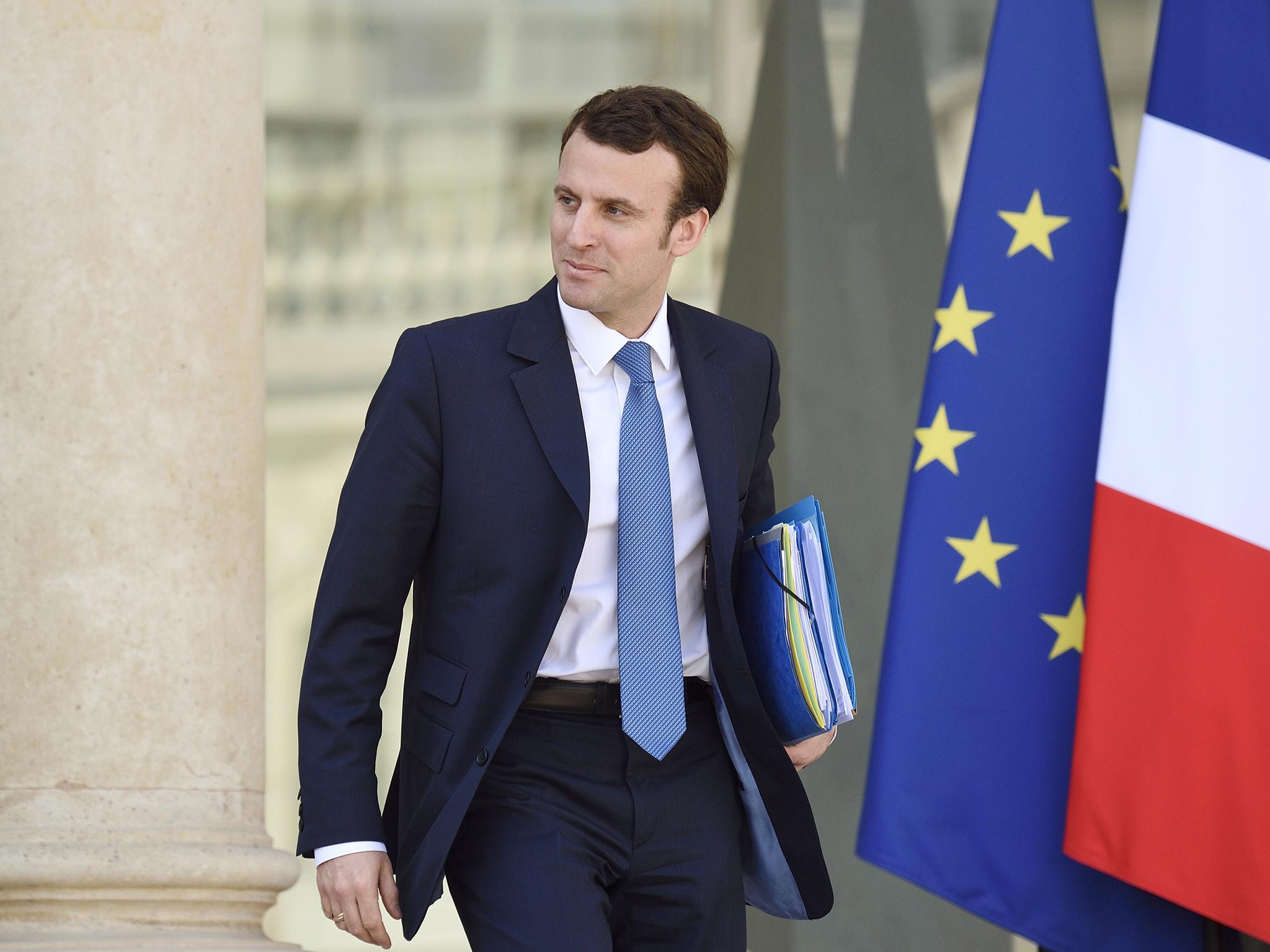Emmanuel Macron: how France's economy minister could transform politics in his country
Mr Macron appears to be setting himself up for a run at the presidency by laying claim to the political centre ground

A mass of contradictions define the career of Emmanuel Macron. An investment banker yet a standard-bearer for the left. A socialist but not a member of the Parti Socialiste (PS). A government minister but unelected. Thirty-eight years old, but seemingly poised to launch his campaign for President of the Fifth Republic.
Mr Macron attended the Ecole nationale d’administration, an elite graduate school and feeder for the upper echelons of the public sector. He was first appointed as the presidential deputy chief of staff under François Hollande, then promoted to replace Arnaud Montebourg as minister for the economy. The man known as ‘Emm’ soon became synonymous with the modern, liberal market wing of the government. His notorious comment on Mr Hollande’s millionaire income tax bracket of 75 per cent as “Cuba without the sun” won him admiration from the pro-market wing of the PS, and that particular policy was later quietly dropped.
He has used his position as economy minister to enact bold reforms, including divisive on-going changes to the French labour code, which some see as increasing labour market flexibility while others see them as a threat to workers’ rights. Despite the countrywide protests against this labour changes, his polling numbers have remained consistently high. He regularly tops polls of future socialist leaders and in a recent survey 38 per cent of people stated he would be a good president.
Boosted by his favourable poll numbers and his rapid ascent to power, he launched – back in April – a cross-party political movement ‘En Marche!’ (Forward!) to ‘unblock’ France’s political process. He laid a pragmatic claim to the political centre, claiming to be willing to work with the left and the right to enact wide-reaching reforms to the world’s fifth largest economy. More likely, this movement will lay the groundwork for a larger political movement to support Mr Macron should he decide to launch a campaign for the Élysée in either 2017 or 2022.
Thus far, the movement’s 50,000 mostly young, well-educated volunteers have been door knocking to gather policy suggestions for a new political platform for Mr Macron in the autumn. Whether he decides to stand depends on the actions of his mentor and current president, Mr Hollande, who is languishing in the polls with an approval rating of 11 per cent. Under his leadership, the PS would struggle to even reach the second round of voting in the 2017 elections, losing to the resurgent centre-right Républicains and the far-right Front National. At the moment, Mr Macron appears the only figure to come close to beating the likely candidate of the right, the former Prime Minister Alain Juppé.
In pictures: France strikes
Show all 12Having once stated “the left of today does not satisfy me”, Mr Macron personifies the increasing disillusionment with an outdated two-party system built around the question of the role of the state. The left believes in more state, the right believes in less. Mr Macron has expressed his weariness with the two-party system, which he says encourages partisan politics and ideological extremism. His movement aims to find like-minded people who support initiatives on inequality, job security, personal freedoms and Europe, much like how we saw MPs from the Conservative and Labour parties stand together to support a Remain vote in the EU referendum. He would find allies across Europe in the Dutch Liberal leader Mark Rutte and the Italian Prime Minister Matteo Renzi, both of whom are enacting bold reforms in harsh political climates. His commitment to the European project is absolute, famously warning that the UK would risk ‘Guernsey-fication’ if it abandoned its allies.
His own project is bold; one of his aides states that there are many dead political movements in France. Macron himself admits that his might fail and be exposed as just another soft idealist. But in a country increasingly weary of its aged political system, when the splits between parties fall between globalism and nativism rather than Keynes and Smith and when people are clearly searching for a new kind of politics: internet activism and sit-in demonstrations could well result in a mandate for the reforms of President Macron.
Subscribe to Independent Premium to bookmark this article
Want to bookmark your favourite articles and stories to read or reference later? Start your Independent Premium subscription today.

Join our commenting forum
Join thought-provoking conversations, follow other Independent readers and see their replies